
Top 10 centenary works of French architecture in Hanoi
- on Oct 22, 2020 By: BN
If old Hanoi charms visitors with its fabulous thousand-year-old heritage steeped in the traces of time, the capital also attracts with its French face, sculpted over nearly three quarters of a century.
Civil, institutional or religious, colonial buildings in various styles have rubbed shoulders with contemporary ones for more than a century in a beautiful harmony. And this gives Hanoi city a special charm, an architectural and urban heritage unique in Indochina, but also in Asia. What do we call today the Paul Doumer Bridge, the Louis Finot Museum, the College of the Protectorate and many other places full of nostalgia? For lovers of architecture and history, a tour of downtown Hanoi is sure to fill you up.
Hanoi Opera House (1901 - 1911)
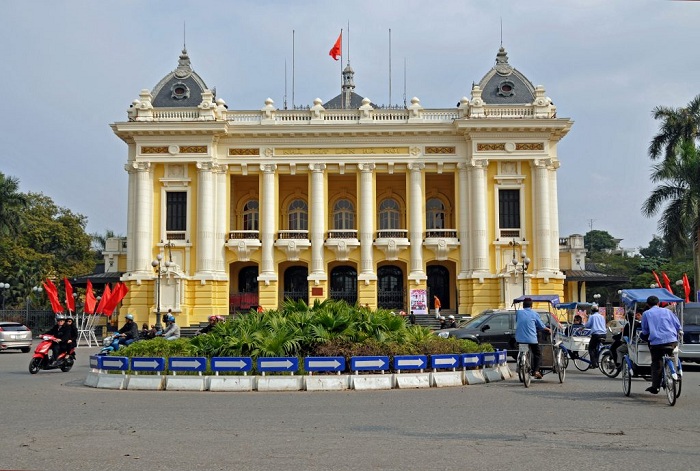
Located at August Revolution Square, across from Trang Tien Street leading to Hoan Kiem Lake, this magnificent work stands out as one of the largest from the colonial era. Built in 1901 and taking ten years to be completed, it was initially a meeting place for Western artists, reserved for the wealthiest people. This small Opera Garnier in Paris was the work of architects Harlay and Broyer who adapted it to tropical characteristics while evoking the colours and silhouettes of operas in the south of France.
The Cathedral of Saint Joseph (1884 - 1887)
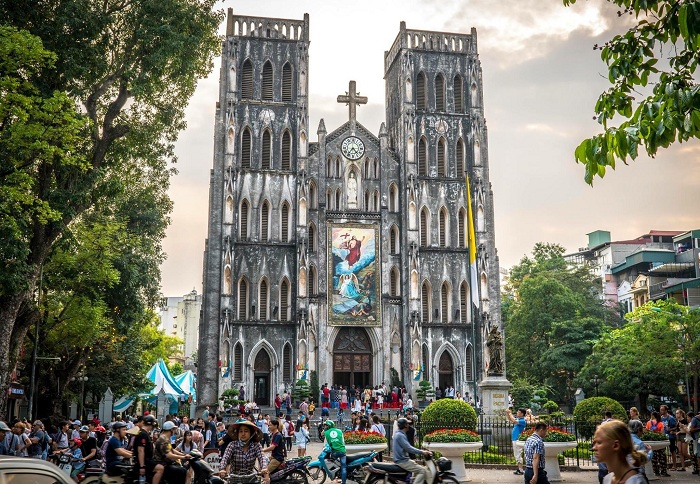
Located at the crossroads of Nha Chung, Nha Tho and Ly Quoc Su streets, this majestic monument was the first Catholic cathedral built in Hanoi and still stands out as the most important in the city. Marked by the Western architectural style of the 12th century and the Renaissance, it is inspired by the Cathedral of Notre Dame de Paris with large arcades on the facade. Hanoi’s religious centre, this place is also a stop for walkers and travellers who gather there to admire one of the oldest buildings with French architecture.
The National Museum of Vietnamese History (1926 - 1932)
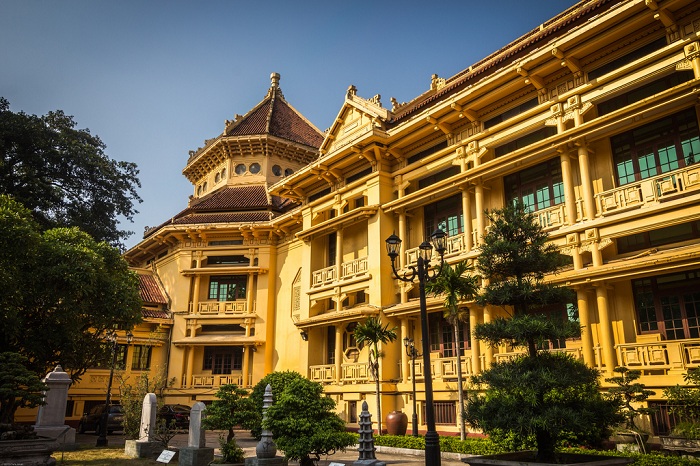
The oldest of the national museums, the National Museum of the History of Vietnam at 1 Trang Tien Street is inherited from the Louis Finot Museum, attached to the French School of the Far East. One of the most visited in Hanoi, it will draw you in with its exceptional collections of the country's tangible heritage. Designed by architects C. Batteur and E. Hebrard, it is a great example of Indochinese architecture that attempted to blend Western and Eastern styles. Despite a shape reminiscent of old Chinese buildings, its double roof is representative of the traditional Vietnamese style.
The Long Bien Bridge (1898 - 1902)
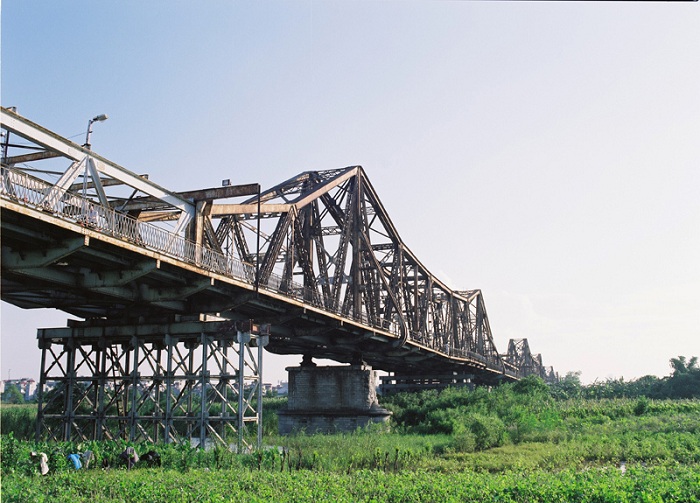
He was baptized at the time of Paul Doumer to honour the Governor General of Indochina. Measuring nearly 2 kilometres long, this bridge spanning the Red River was the most imposing in Indochina in the 19th century that can be seen marking Daydé & Pillé - Paris, the name of the designers. Straddling two centuries with a dozen bombings experienced, this old iron veteran retires by quietly serving the trains and two wheels of the capital. Connecting past and present, the Long Bien Bridge is, for the Vietnamese, one of the best storytellers of nearly a turbulent century in the capital.
The National University of Vietnam, formerly the University of Indochina (1923 - 1926)
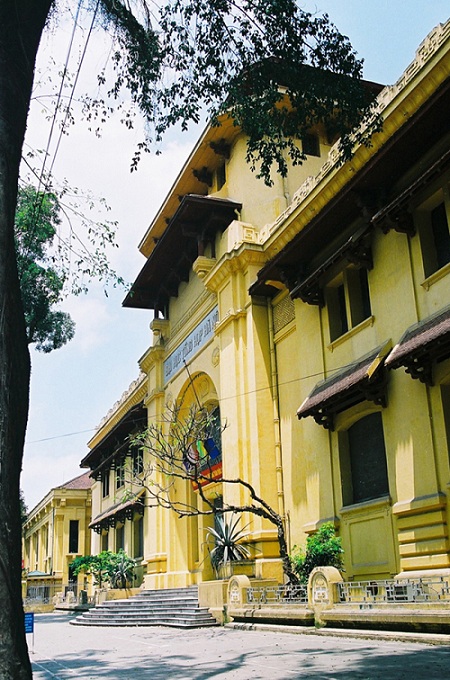
Found at 19 Le Thanh Tong Street, the building that smacks of Indochinese architecture is now the headquarters of the National University of Vietnam. Founded by the French as the first university institution in the country, the University of Indochina aimed to train senior intellectuals from the three countries of the region. Signed by Ernest Hebrard, this imposing and charming construction is a highlight of Hanoi’s historical and architectural sites.
The State Bank of Vietnam, former bank of Indochina in Hanoi (1875)
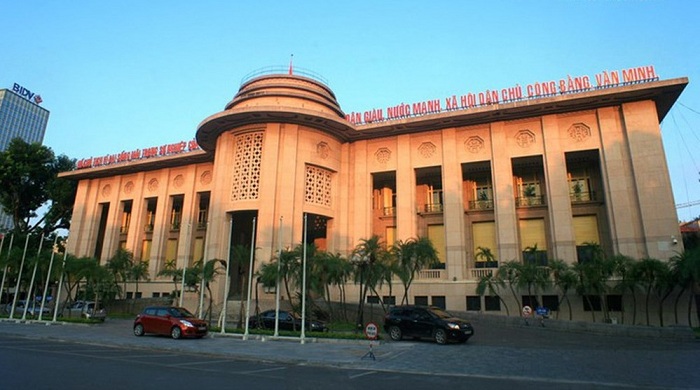
Former branch of the Bank of Indochina established in 1875 by the French President, the State Bank of Vietnam is located at one end of the Paul Bert Garden or current Ly Thai To Garden, opposite Hoan Kiem Lake. The building is characterized by the most remarkable Art Deco style in Hanoi with some traditional touches highlighted by ancient Vietnamese motifs. Two other branches of the Bank of Indochina remain present in two large cities, Haiphong in the North and Ho Chi Minh City in the South, all of which are attractive with their particular architecture.
Hanoi Presidential Palace, residence of the Governor General of Indochina (1900 - 1906)
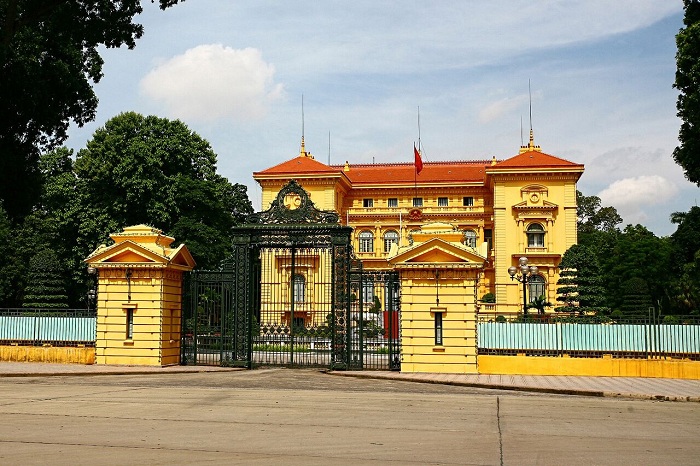
Named in the top 13 most beautiful palaces in the world by the American magazine Architectural Digest, the Presidential Palace of Hanoi served as the residence of the Governor-General of Indochina. Located in the current The Republic or Hoang Van Thu Streets, opposite the Puginier Square or the current Ba Dinh Square, the work designed by Auguste Henri Vildieu invites you to contemplate the greatest landmark of the neoclassical style in Hanoi, the most sumptuous and expensive work of its time.
Chu Van An High school, former Protectorate College (1908)
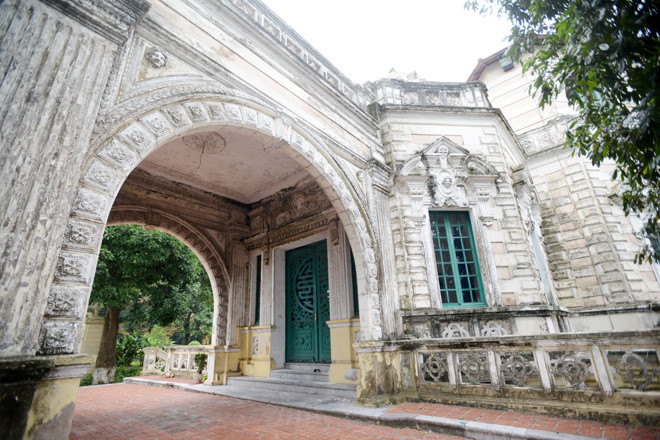
One of the finest of its kind, Chu Van An High school was known as the Protectorate College established by the French in 1908. It was also referred to as Buoi High school by Vietnamese teachers and students for its location in Buoi Village. The Bat Giac or Octagon building, residence of the Director, is its flagship for the elegant architecture of the Schneider villa bearing the name of the first owner. With the financial support of the Île-de-France region, this beautiful house was renovated and refurbished in 1999 to become a library.
Dong Xuan market (1890)
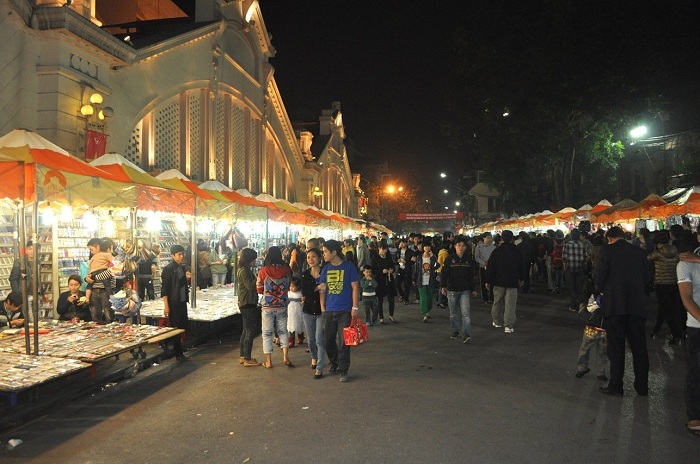
Right in the heart of Hanoi's Old Quarter, the city's stomach is, far beyond one of Hanoi's bustling markets, a great attraction with a history dating back to the reign of the Nguyen Dynasty. It stood in the open until 1890 when the French began construction by installing the iron frame. The original architecture, despite the fire in 1994, has been respected as can be seen today. Since 2003, the place invites pedestrians to stroll there in the evening to discover the Hanoi night market which connects Dong Xuan, Hang Dao streets to Hoan Kiem Lake.
The headquarters of the daily Hanoimoi newspaper, former hotel "l'Avenir du Tonkin" in Hanoi (1893)
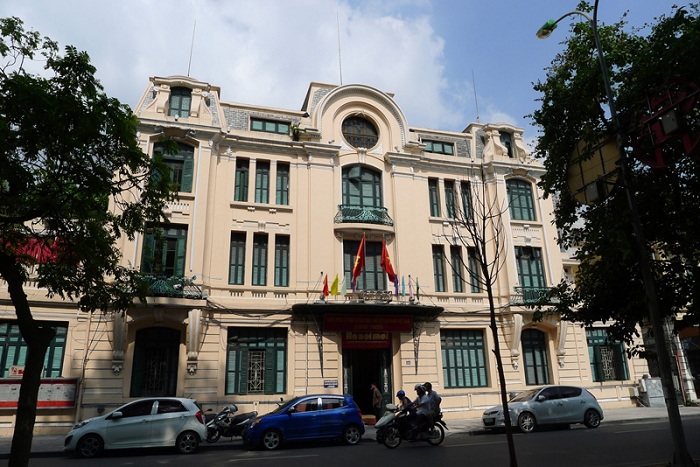
Just two minutes from Hoan Kiem Lake at 44 Ly Thai To Street, find one of the most beautiful French buildings dating from the end of the 19th century which was the "Hôtel de l'Avenir du Tonkin" in Hanoi. The structure of present-day New Hanoi is distinguished by its appearance typical of the Art Nouveau style, which was popular during colonial times.
Related articles:
>> Top 10 unmissable dishes in Hanoi
>> Imperial Citadel of Thang Long, the thousand-year-old face of Hanoi
Comment
Other Blog
Categories
Latest News
on 27 Apr, 2023      
on 15 Apr, 2023      
on 28 Mar, 2023      
 Español
Español Français
Français



















F
on Jan 3, 2024Igor Mozetic
on Apr 8, 2023Ira Beale
on Feb 10, 2023Phạm Phú Toàn
on Jan 28, 2023Max Stover
on Jan 11, 2023